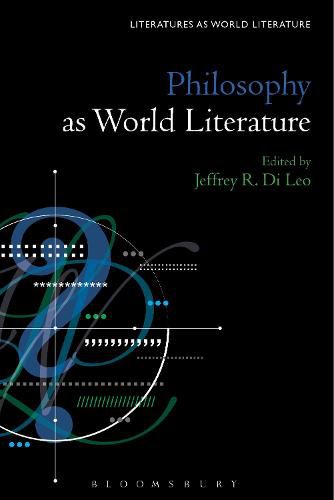Readings Newsletter
Become a Readings Member to make your shopping experience even easier.
Sign in or sign up for free!
You’re not far away from qualifying for FREE standard shipping within Australia
You’ve qualified for FREE standard shipping within Australia
The cart is loading…






What does it mean to consider philosophy as a species of not just literature but world literature? The authors in this collection explore philosophy through the lens of the worlding of literature–that is, how philosophy is connected and reconnected through global literary networks that cross borders, mix stories, and speak in translation and dialect.
Historically, much of the world’s most influential philosophy, from Plato’s dialogues and Augustine’s confessions to Nietzsche’s aphorisms and Sartre’s plays, was a form of literature–as well as, by extension, a form of world literature. Philosophy as World Literature offers a variety of accounts of how the worlding of literature problematizes the national categorizing of philosophy and brings new meanings and challenges to the discussion of intersections between philosophy and literature.
$9.00 standard shipping within Australia
FREE standard shipping within Australia for orders over $100.00
Express & International shipping calculated at checkout
What does it mean to consider philosophy as a species of not just literature but world literature? The authors in this collection explore philosophy through the lens of the worlding of literature–that is, how philosophy is connected and reconnected through global literary networks that cross borders, mix stories, and speak in translation and dialect.
Historically, much of the world’s most influential philosophy, from Plato’s dialogues and Augustine’s confessions to Nietzsche’s aphorisms and Sartre’s plays, was a form of literature–as well as, by extension, a form of world literature. Philosophy as World Literature offers a variety of accounts of how the worlding of literature problematizes the national categorizing of philosophy and brings new meanings and challenges to the discussion of intersections between philosophy and literature.